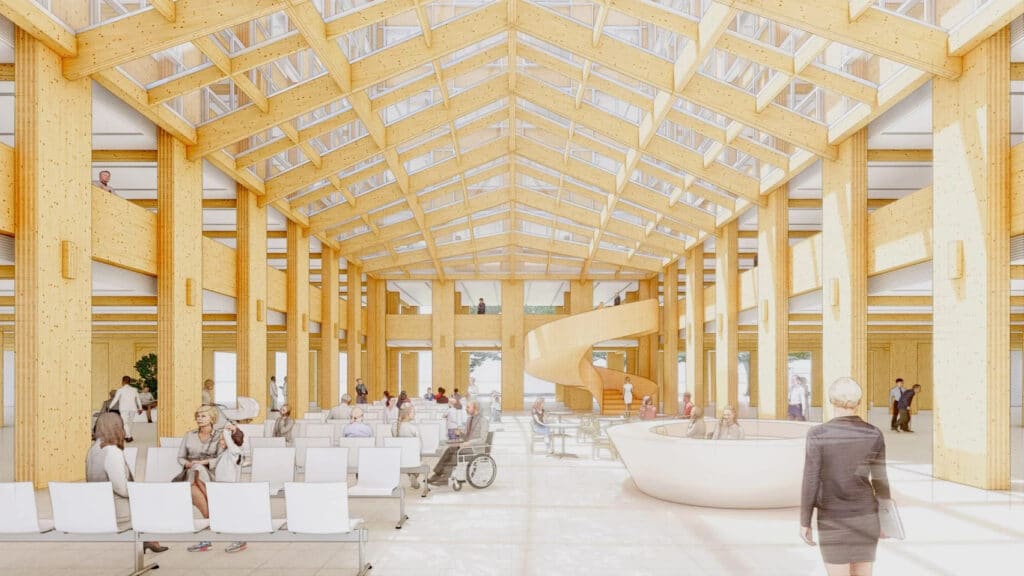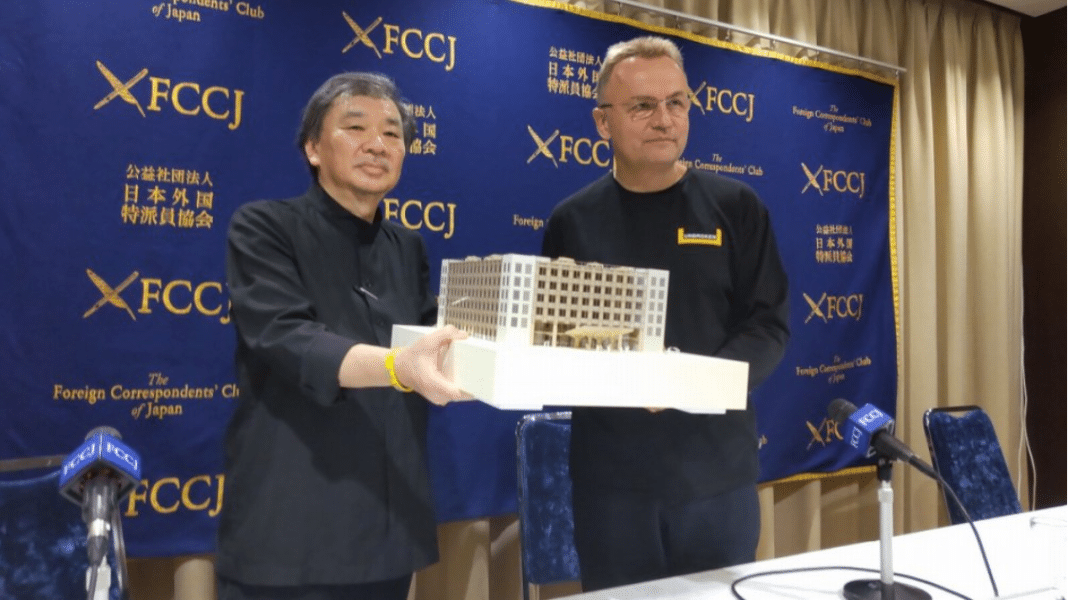Plans for the Lviv hospital extension in Western Ukraine were unveiled before a media conference in Tokyo yesterday, with Japanese architect Shigeru Ban stressing the urgent need for the project.
Shigeru Ban is the principal of the Pritzker Prize-winning studio Shigeru Ban Architects and is developing a Styrofoam Housing System (SHS) to provide affordable housing solutions for those affected by the war.
“We need to build immediately, even before the war is ended,” he said.
In July, Wood Central reported that the six-storey building will use cross-laminated timber (CLT) as its base material.
The latest renders show a rectangular block with a gridded facade and an expressed-timber entrance canopy.

The hospital is already Ukraine’s largest hospital by capacity, with Lviv Mayor Andriy Sadovyy and Shigeru Ban calling on the international community to raise US $80 million to help with the construction.
The project was unveiled at the Lviv Urban Forum in June 2023, with plans drawn up for construction to commence early next year, subject to finance.
The project will use local timbers and is designed around a central atrium containing the reception area and surrounded by exposed timber columns.
According to Shigeru Ban Architects, the structure has been developed with Swiss engineering studio Hermann Blumer not to require metal joints.

Mayor Sadovyy said Ukraine is fighting to protect its independence and needs Japan’s experience, indicating his wish to apply Japan’s knowledge and technologies to improve medical care.
About 150,000 internally displaced people are said to be living in Lviv after they fled Russian attacks in the eastern and southern parts of Ukraine. The city has a population of about 700,000, with more than 15,000 reported to have received treatment.
Last month, Wood Central reported that Ukraine requires significantly greater access to humanitarian, military and financial support to rebuild critical infrastructure and industry.
In the report produced by Forests Europe, the war has “significantly damaged forests and other natural landscapes, compromising the possibility of forestry activities in the country.”

It found that up to 50% of Ukrainian processors have already closed production, with a total volume of timber sales decreasing by 1.813 million cubic metres due to the conflict in forested areas and a blockade in the black sea, which has the export of forest products to a crawl.
Significantly, Ukraine has limited access to external financial sources due to many issues, including “eligibility issues, language barriers, a heavy administrative and bureaucratic burden.”
The report claims that Ukraine, as a country, and the Ukrainian forest-related administration can only solve the challenges with significant international support and aid.
To achieve this, it needs significantly more international humanitarian and military support, far more than currently committed, to rebuild Ukraine’s critical infrastructure.






